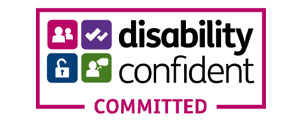Trust and Transparency
This is an unprecedented moment in time, where the old rules no longer apply. So what does this mean for the future of leadership in the social sector?
In 2019, society faces vast problems: poverty, environmental destruction, people feeling disenfranchised. Such complex issues cannot be solved by one sector acting alone, or by using the simplistic ‘cause and effect’ paradigms of old.
At the same time, in our digital age, organisations and leaders have greater professional and personal exposure. The days of automatic trust are long gone. Clearly, a new approach is needed – and a new kind of leadership, based on transparency and trust.
We need individuals who will understand the interconnected nature of the issues we are dealing with, try new ways of working together to tackle them, and learn whether their approach works in real time, through world class monitoring and evaluation. They will know when they are successful but also be open when they are not successful – sharing their findings and learning together.
This more collaborative, open style certainly challenges the accepted view of how the social sector should operate. Moves towards greater commercialisation and payment by results over the past 20 years have driven a style of management that is not always transparent – and may, in fact, be less likely to stimulate partnerships. The challenge is to change that in an age where trust will be ever more important, especially for millennials and Gen Z.
The good news is that the face of leadership has already started changing. Even five years ago, recruiters were still seeking leaders with ‘functional’ experience – experienced in management, good with numbers, unlikely to frighten the Board. But today – with increased competition, less stability and more movement between sectors – the old skillset is too rigid. Instead, we actively seek leaders who are agile, creative and externally-focused.
In 2019, the people who are most effective in driving positive social outcomes not only lead and inspire their own organisations, they also look outwards to catalyse change.They influence other organisations, and even sectors, and encourage action based on shared vision. They are flexible, adept at forming partnerships and comfortable with ambiguity.
These leaders also communicate more authentically. They are unafraid to show humility. This means that the way they report on performance may be different – based on a higher degree of openness about failures, and on new, even experimental measures of success.
In a world where the future is unknowable, transformation depends on the ability to continuously experiment and adapt. Leadership that relies on fixed outcomes, or a rigid plan, simply won’t deliver.
If you embrace the risk, things will go wrong. But transparency is also the only way to win lasting trust – and with it, the funds you need to change the world.
We are three organisations who each want our work to contribute to a better society. We share a common belief that social change is everyone’s responsibility and bring different perspectives and expertise to the table. Our collaboration is based on a belief in co-production and that, together, we will always achieve mor

2025 Budget
We wrote to 400 leaders to ask them for a reaction to last week’s Budget. Here’s what they said.
Funding Crises and the Search for Financially Resilient Leaders
Councils in England are under systemic strain. The Bennett School of Public Policy estimates a collective funding gap of £9.3 billion over the next few years, with most authorities forecast to operate in deficit. Meanwhile, Grant Thornton warns that up to 40% of councils could face financial failure within five years without new income or deeper cuts.
Statutory Officers Under Pressure: Leading in a Fluctuating Political Environment
Statutory officers have always been central to the integrity and stability of local government. Today, their roles are under unprecedented strain. Political volatility, heightened scrutiny, constrained resources, and rising public expectations have created a more complex and demanding environment than ever before.
ACCREDITATIONS


ESPO is a public sector owned professional buying organisation (PBO), specialising in providing a wide range of goods and services to the public sector for over 40 years. Starfish Search has been awarded a place on ESPO’s Strategic HR Services framework (3S). Services we offer under the framework include: Lot 1, Executive and Managerial Interim Recruitment Lot 2, Executive and Managerial Permanent Recruitment.


Starfish are proud to be certified Disability Confident Committed. This scheme provides employers with the knowledge, skills and confidence needed to attract, recruit, retain and develop disabled people in the workplace.


Crown Commercial Service supports the public sector to achieve maximum commercial value when procuring common goods and services. In 2020/21, CCS helped the public sector to achieve commercial benefits equal to £2.04bn - supporting world-class public services that offer best value for taxpayers. Starfish Search has been named as a supplier on Crown Commercial Service’s Executive and Non-Executive recruitment. Services we offer under the framework include: Lot 3 - Non-Executive and Public Appointments.


Bloom, launched in 2012 is the UK’s leading marketplace for professional services. They provide an end-to-end solution for the procurement, contract management and payment of all professional services, via the compliant NEPRO³ framework. Their public sector clients have access to 20 professional services categories and over 4500 accredited suppliers. Bloom provides swift routes to market via either direct award or mini competition. Starfish is an accredited supplier to BLOOM; our services can be accessed via this framework - Executive and Non-Executive Search and Interim Management.
Join the starfish team
We hire people who bring insight, integrity and ambition to their work. If you’re ready to contribute to shaping the future of leadership and you want to explore our current opportunities please click the link below.
find out more